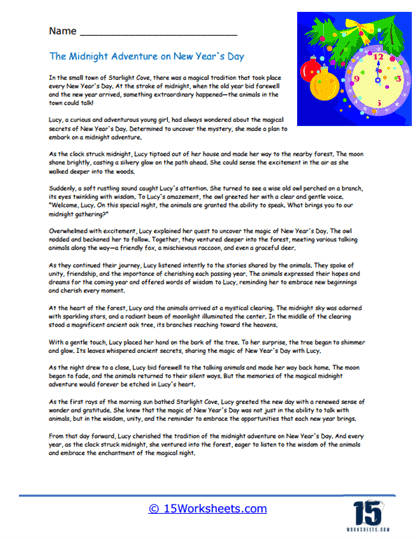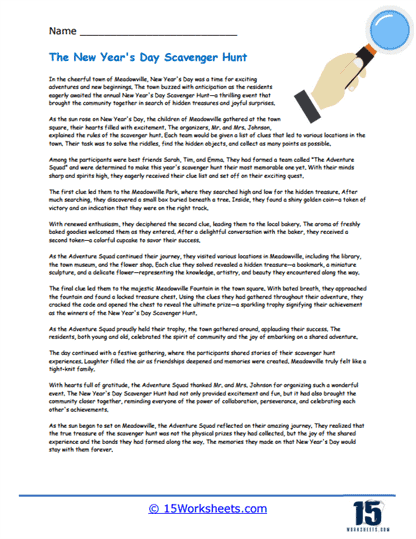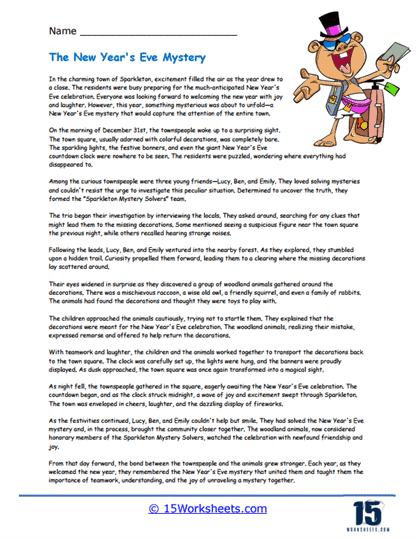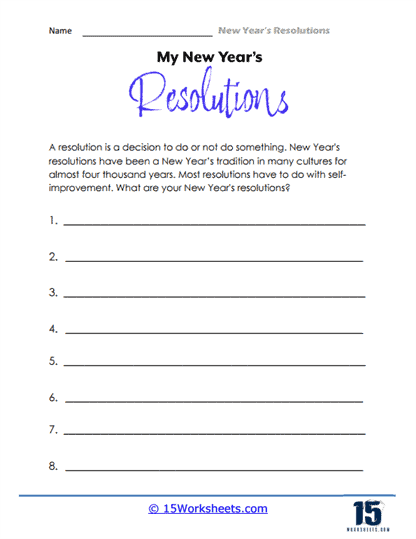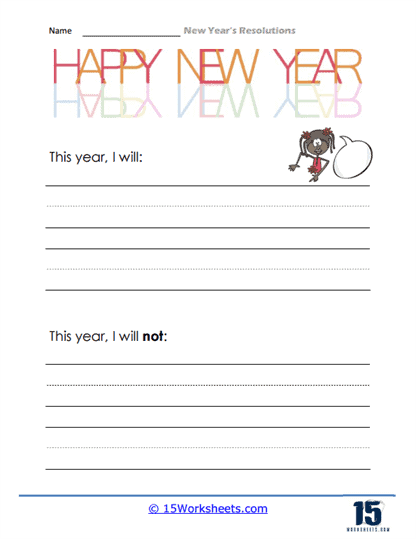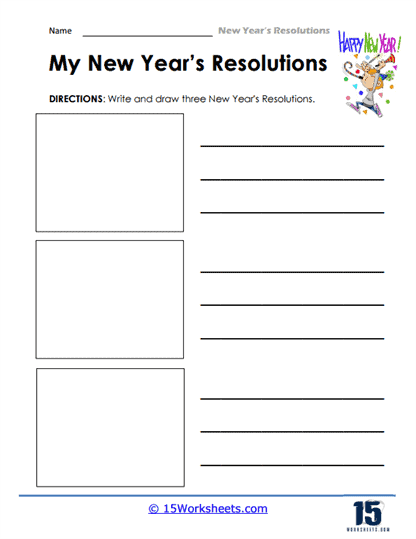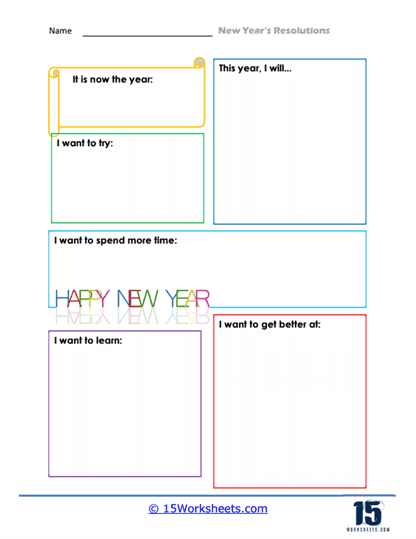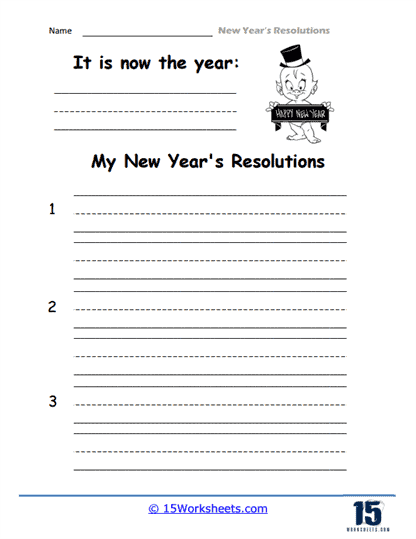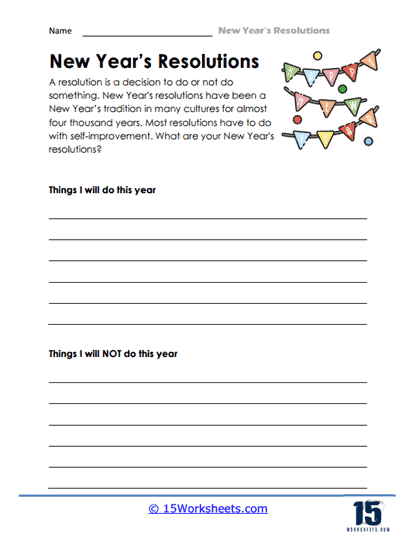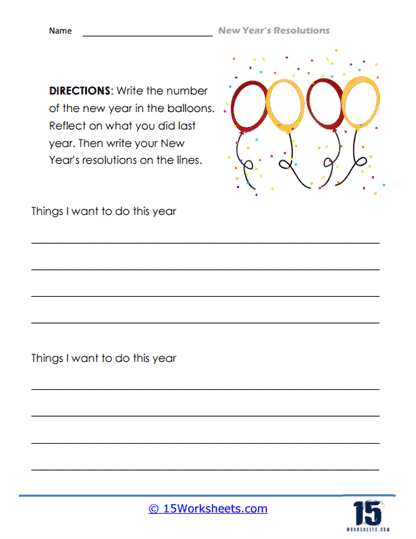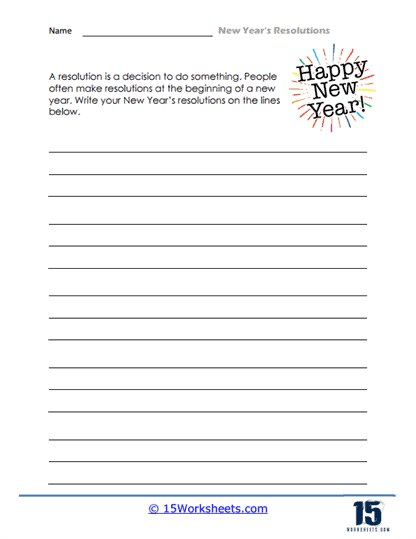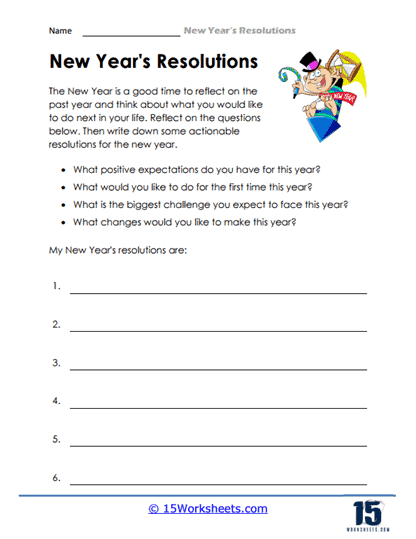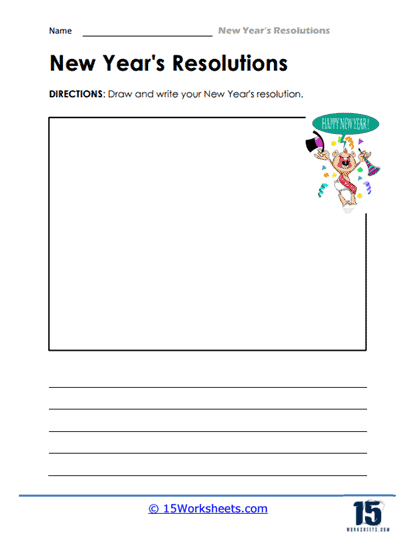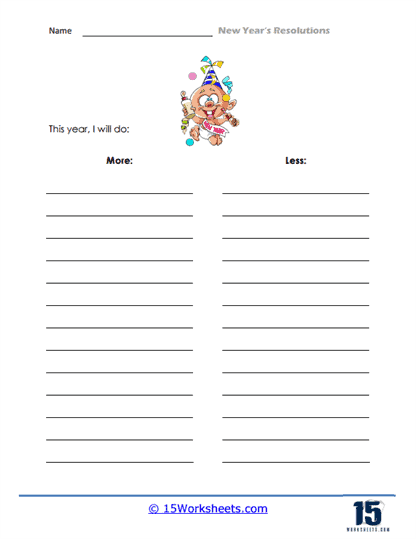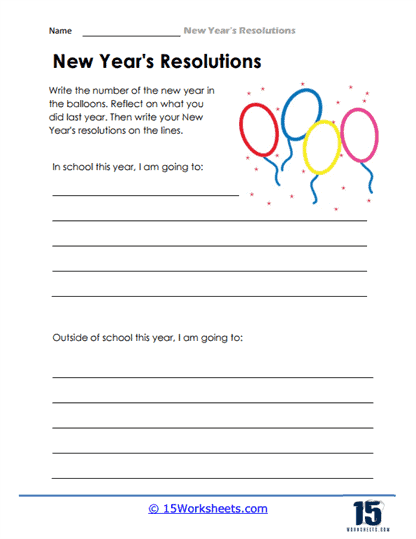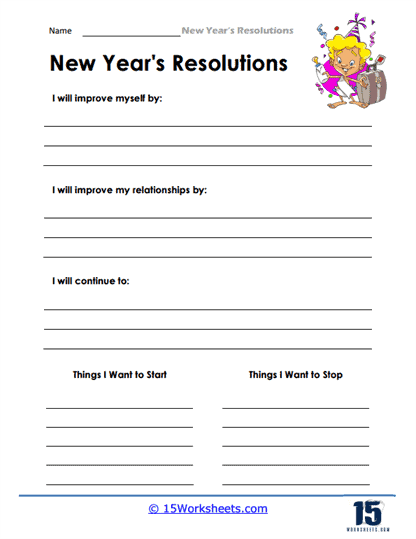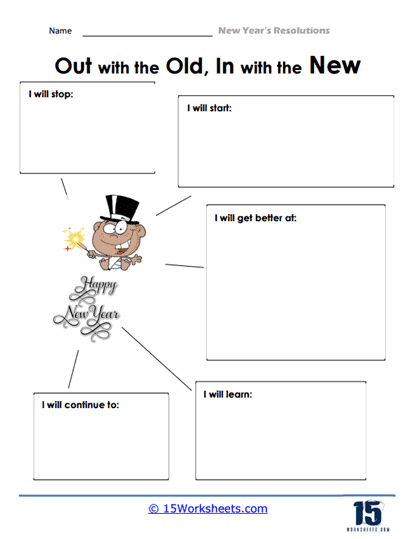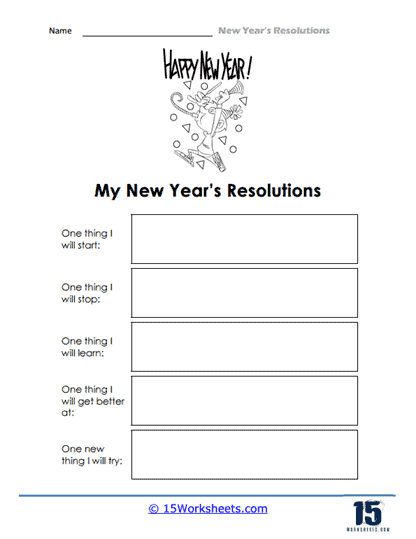New Year's Resolutions Worksheets
All About These 15 Worksheets
This series of 15 worksheets is an engaging and educational resource designed to inspire students to reflect on the past year and set goals for personal growth and self-improvement in the coming year. These worksheets provide students with an opportunity to explore the concept of New Year’s resolutions, develop goal-setting skills, and foster a sense of motivation and accountability. By completing a variety of activities, students will deepen their understanding of setting goals, develop action plans, and cultivate a positive mindset for the year ahead. Through these worksheets, students will:
- Reflect on the accomplishments, challenges, and lessons learned from the previous year;
- Cultivate a positive mindset to support their New Year’s resolutions;
- And showcase their New Year’s resolutions through varied writing prompts.
This series provides an engaging and educational resource for students to reflect, set goals, and cultivate a positive mindset for the new year. Through activities encompassing self-reflection, goal-setting, action planning, reflection, and mindset development, students will deepen their understanding of personal growth, foster critical thinking skills, and cultivate resilience. In summary, these worksheets empower students to take ownership of their goals, develop strategies for success, and foster a sense of motivation and personal development for the year ahead.
What are New Year’s Resolutions?
New Year’s resolutions are personal goals, commitments, or lifestyle changes that individuals set for themselves at the beginning of a new year. These resolutions typically reflect a desire for self-improvement, personal growth, or the development of new habits. They serve as an opportunity for people to reflect on the past year, assess their accomplishments, and set aspirations for the upcoming year.
Common New Year’s resolutions often involve areas such as health and fitness, personal finance, career growth, education, relationships, and self-care. Examples of popular resolutions include losing weight, exercising regularly, quitting smoking, saving money, learning a new skill, traveling more, or spending more time with loved ones.
Despite the popularity of setting New Year’s resolutions, research suggests that a significant number of people struggle to maintain their commitments throughout the year. This can be due to various factors, such as setting unrealistic goals, a lack of clear planning, insufficient motivation, or the absence of a support system.
To increase the chances of success in achieving New Year’s resolutions, experts recommend setting specific, measurable, achievable, relevant, and time-bound (SMART) goals, breaking down larger goals into smaller, manageable steps, and seeking support from friends or family members. Regularly monitoring progress and adjusting plans as needed can also help individuals stay on track and maintain their motivation throughout the year.
What are the Most Common New Year’s Resolutions?
The most common New Year’s resolutions often revolve around self-improvement, personal growth, and the development of healthier habits. Some popular New Year’s resolutions include:
Exercise More
Many people aim to increase their physical activity levels, whether by going to the gym, taking up a new sport, or incorporating more movement into their daily routines.
Health Improvements
Weight loss is a common goal, with individuals seeking to improve their health and fitness through better nutrition and increased exercise. Adopting a more balanced diet, consuming more fruits and vegetables, and reducing the intake of processed foods and sugary drinks are typical resolutions related to healthier eating.
Many people use the new year as an opportunity to quit smoking or cut back on their alcohol intake to improve their overall health and well-being.
This can involve practicing mindfulness, meditation, or yoga, seeking professional help, or simply dedicating more time to relaxation and self-reflection.
Improve Finances
This can include creating a budget, reducing unnecessary expenses, or setting specific savings goals.
Learn a New Skill
Some individuals resolve to acquire new skills, such as learning a musical instrument, taking up a new sport, or mastering a foreign language.
Decluttering, developing better time-management skills, and creating more structured routines are typical resolutions aimed at improving organization and productivity.
Spend More Time with Family
Strengthening relationships and making an effort to connect with loved ones are common resolutions.
Many people set goals to explore new destinations, experience different cultures, and broaden their horizons through travel.

